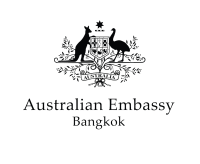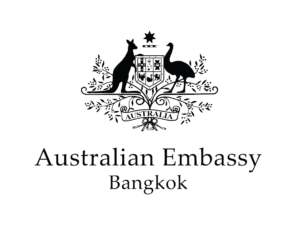News
- Updates related to COVID-19:
- Today, Thailand reports 14 newly confirmed cases, a total of 3,559 cases. Out of the total number, 3,370 have been discharged from hospital (at 94.69%); 130 are being hospitalised. The death toll is at 58. The newly confirmed cases are returnees from South Sudan (7), Turkey (1), Hong Kong (3) and India (3) and have been in state quarantine since.
- Yesterday, the CCSA outlaid the additional six groups of foreigners to be allowed to enter Thailand from 1 October, in a bid to revitalise the economy. More information will be put here, should the order is gazetted.
- The CCSA Facebook Page cited Interior Ministry order in extending the visa amnesty to be effective from 27 September until 31 October. But the order is not yet available publicly.—see post here
- The cabinet has approved the extension of the State of Emergency for one more month in a bid to collaborate all administrations as suggested by the CCSA.
Politics
- A media report quotes a source in Pheu Thai Party saying that in the upcoming extraordinary party meeting on 1 October, it is highly likely that the party leader remains under Sompong Amornwivat’s reign, the secretary-general seat will be taken by Prasert Chantararuangthong. The media also reports that there has been a talk to set up a party ‘politburo’ to make decision on significant matters with Pojamarn, the divorced wife of former PM Thaksin lead the committee with other main figures who is now in the ‘CARE Group’ to join the executives.—Thai Post
Business:
Pesticide Banning
- The National Hazardous Substances Committee (NHSC) yesterday voted to keep its ban on the use of paraquat and chlorpyrifos in Thailand’s agricultural sector. The vote followed a report published by the Foundation for Consumers that showed residues of paraquat was found in nam pu (fermented field crab paste). Industry Minister Suriya said the NHSC would not revisit the decision in the future. The committee also ordered Agriculture Ministry to find alternatives to help farmers cope with the financial impact of the ban. By June next year, the Ministry of Public Health plans to set a limit for paraquat and chlorpyrifos residues in food ingredients grown domestically, as well as imported raw materials, such as wheat and maize. Source: Bangkok Post Bangkok Post
- The article summarises the timeline leading up to the National Hazardous Substances Committee’s decision to ban the use of paraquat and chrlorpyrifos that took effect on June 1. It also explores the debates surrounding the ban, including the Maximum Residue Limits. Source: Bangkok Post
Others
- Finance Ministry expects the Thai economy to contract less in Q3, given some improvements in economic indicators in August compared to June and July, such as manufacturing, private consumption investment and merchandise export. However, recovery largely depends on foreign tourist arrivals, which accounts for 11 percent of Thailand’s GDP. In the first seven months of 2020, tourist arrivals and spending had declined 70 percent. MoF forecasts the economy to contract 8.5 percent in 2020 and rebounds to 4-5 percent growth in 2021. Source: Bangkok Post
- The number of people living below poverty line (earning monthly income of 2,710 Baht per person) this year is likely to surge above 6.7 million or 9.85 percent of the population due to poor economy, the trade war, technological disruption and the pandemic, according to the National Economic Social Development Council (NESDC). The NESDC estimates the unemployment rate will stand at 2 percent of the total workforce this year, or 750,000 people. According to IMD’s world competitiveness rankings for 2020, Thailand’s economic performance dropped six positions to 14th, while government efficiency fell three positions to 23rd. Source: Bangkok Post
- Bank of Thailand’s (BOT) 500 billion Baht soft loan program has floundered because the interest rate is incompatible with commercial banks’ financial costs. Most banks do not want to offer the soft loans to SMEs at low interest rate of 2 percent despite having a low lending cost because their financial burdens is higher, at around 2.5 percent. Banks would face a loss of 0.5 percent and they also do not want to shoulder higher bad debts. Source: Bangkok Post
- Hoteliers in Koh Samui are gearing up to welcome an influx of tourists by preparing health volunteers and local state quarantine sites. The island targets bringing in 200 tourists from a total of 1,200 tourists per month that are allowed to visit Thailand in the first stage of reopening. It also plans to propose a Koh Samui bubble model under the Special Tourist Visa scheme within this month. Source: Bangkok Post
Bloomberg
- Fiscal policy is back in focus as Thailand’s central bank runs out of conventional monetary policy space to spur the economy. Yet the latest figures show the government has been slow to disburse its pandemic aid, with less than a third of the 1.9 trillion Baht stimulus aid spent (as of 9 September). Reasons for the slow disbursement include difficulties in identifying the right grassroot projects for the 400 billion Baht aid; delays in cash transfers due to bureaucratic hurdles; the inaccessibility of the Bank of Thailand’s 500 billion Baht soft loans because of lenders’ reluctance to give out the new loans; and budget allocated for health initiatives is not yet used up since it is reserved for vaccines. The government’s spending may gather speed in Q4, with the cabinet set to approve several measures. A rebound next year depends on how fast the government can spend to make up for a slump in tourism and trade, the nation’s key growth drivers. Source: Bloomberg



